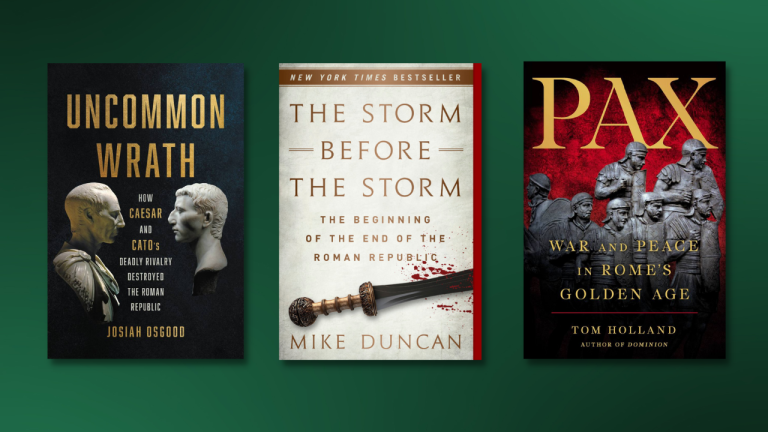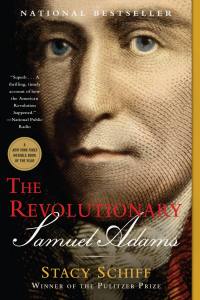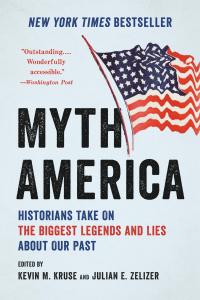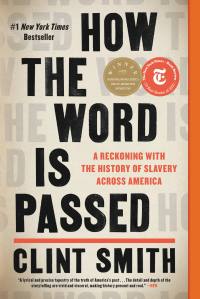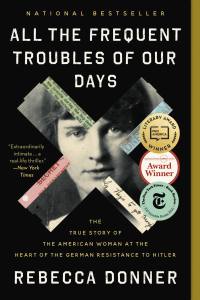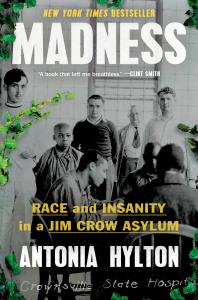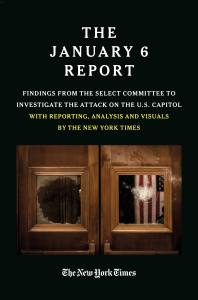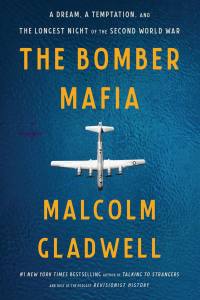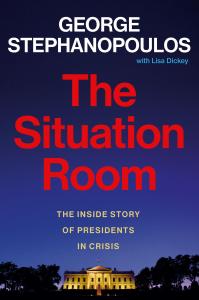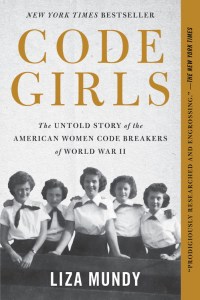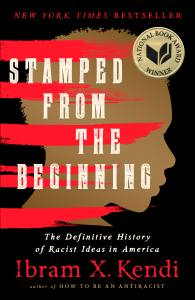10 U.S. History Books You Should Know
Ah, U.S. history. With every second that passes, we have more of it. That’s where having a love of books and reading comes in handy! United States history is an unending source of material for books. From the essential biography of a Founding Father to eye-opening examinations of slavery to de-bunking our nation’s biggest myths, these are the 10 best U.S. history books you should know.
This "glorious" revelatory biography from a Pulitzer Prize winner is about the most essential Founding Father (Ron Chernow)—the one who stood behind the change in thinking that produced the American Revolution.
Thomas Jefferson asserted that if there was any leader of the Revolution, “Samuel Adams was the man.” With high-minded ideals and bare-knuckle tactics, Adams led what could be called the greatest campaign of civil resistance in American history. Stacy Schiff returns Adams to his seat of glory, introducing us to the shrewd and eloquent man who supplied the moral backbone of the American Revolution. A singular figure at a singular moment, Adams amplified the Boston Massacre. He helped to mastermind the Boston Tea Party. He employed every tool available to rally a town, a colony, and eventually a band of colonies behind him, creating the cause that created a country. For his efforts he became the most wanted man in America: When Paul Revere rode to Lexington in 1775, it was to warn Samuel Adams that he was about to be arrested for treason. In The Revolutionary: Samuel Adams, Schiff brings her masterful skills to Adams’s improbable life, illuminating his transformation from aimless son of a well-off family to tireless, beguiling radical who mobilized the colonies. Arresting, original, and deliriously dramatic, this is a long-overdue chapter in the history of our nation.
ONE OF WALL STREET JOURNAL'S 10 BEST BOOKS OF 2022 ONE OF LOS ANGELES TIMES TOP 5 NONFICTION BOOKS OF 2022 ONE OF THE NEW YORK TIMES MOST NOTABLE BOOKS OF 2022 ONE OF BARACK OBAMA'S FAVORITE BOOKS OF 2022 And named one of the BEST BOOKS OF 2022 by The New Yorker, TIME, Oprah Daily, USA Today, New York Magazine, Air Mail, Boston Globe, and more!
"A glorious book that is as entertaining as it is vitally important.” —Ron Chernow
"A beautifully crafted, invaluable biography…Schiff ingeniously connects the past to our present and future, underscoring the lessons of Adams while reclaiming our nation’s self-evident truths at a moment when we seemed to have forgotten them." —Oprah Daily
In this “incisive” (Vanity Fair) and “authoritative” (New York Times) instant New York Times bestseller, America’s top historians set the record straight on the most pernicious myths about our nation’s past
The United States is in the grip of a crisis of bad history. Distortions of the past promoted in the conservative media have led large numbers of Americans to believe in fictions over facts, making constructive dialogue impossible and imperiling our democracy.
In Myth America, Kevin M. Kruse and Julian E. Zelizer have assembled an all-star team of fellow historians to push back against this misinformation. The contributors debunk narratives that portray the New Deal and Great Society as failures, immigrants as hostile invaders, and feminists as anti-family warriors—among numerous other partisan lies. Based on a firm foundation of historical scholarship, their findings revitalize our understanding of American history.
Replacing myths with research and reality, Myth America is essential reading amid today’s heated debates about our nation’s past.
With Essays By
Akhil Reed Amar • Kathleen Belew • Carol Anderson • Kevin M. Kruse • Erika Lee • Daniel Immerwahr • Elizabeth Hinton • Naomi Oreskes • Erik M. Conway • Ari Kelman • Geraldo Cadava • David A. Bell • Joshua Zeitz • Sarah Churchwell • Michael Kazin • Karen L. Cox • Eric Rauchway • Glenda Gilmore • Natalia Mehlman Petrzela • Lawrence B. Glickman • Julian E. Zelizer
This “important and timely” (Drew Faust, Harvard Magazine) #1 New York Times bestseller examines the legacy of slavery in America—and how both history and memory continue to shape our everyday lives.
Beginning in his hometown of New Orleans, Clint Smith leads the reader on an unforgettable tour of monuments and landmarks—those that are honest about the past and those that are not—that offer an intergenerational story of how slavery has been central in shaping our nation's collective history, and ourselves.
It is the story of the Monticello Plantation in Virginia, the estate where Thomas Jefferson wrote letters espousing the urgent need for liberty while enslaving more than four hundred people. It is the story of the Whitney Plantation, one of the only former plantations devoted to preserving the experience of the enslaved people whose lives and work sustained it. It is the story of Angola, a former plantation-turned-maximum-security prison in Louisiana that is filled with Black men who work across the 18,000-acre land for virtually no pay. And it is the story of Blandford Cemetery, the final resting place of tens of thousands of Confederate soldiers.
A deeply researched and transporting exploration of the legacy of slavery and its imprint on centuries of American history, How the Word Is Passed illustrates how some of our country's most essential stories are hidden in plain view—whether in places we might drive by on our way to work, holidays such as Juneteenth, or entire neighborhoods like downtown Manhattan, where the brutal history of the trade in enslaved men, women, and children has been deeply imprinted.
Informed by scholarship and brought to life by the story of people living today, Smith's debut work of nonfiction is a landmark of reflection and insight that offers a new understanding of the hopeful role that memory and history can play in making sense of our country and how it has come to be.
Winner of the National Book Critics Circle Award for Nonfiction
Winner of the Stowe Prize
Winner of 2022 Hillman Prize for Book Journalism
A New York Times 10 Best Books of 2021
The INSTANT New York Times Bestseller
Winner of the National Book Critics Circle Award for Biography
Winner of the PEN/Jacqueline Bograd Weld Award
Winner of the Chautauqua Prize
Finalist for the Los Angeles Times Book Award
Finalist for the Plutarch Award
A New York Times Notable Book of 2021
A New York Times Book Review Editors’ Choice
A New York Times Critics' Top Pick of 2021
Wall Street Journal 10 Best Books of 2021
Time Magazine 100 Must-Read Books of 2021
Publishers Weekly Top Ten Books of 2021
An Economist Best Book of the Year
A New York Post Best Book of the Year
A Milwaukee Journal Sentinel Best Book of the Year
Oprah Daily Best New Books of August
A New York Public Library Book of the Week
In this “stunning literary achievement,” Donner chronicles the extraordinary life and brutal death of her great-great-aunt Mildred Harnack, the American leader of one of the largest underground resistance groups in Germany during WWII—“a page-turner story of espionage, love and betrayal” (Kai Bird, winner of the Pulitzer Prize for Biography)
Born and raised in Milwaukee, Mildred Harnack was twenty-six when she enrolled in a PhD program in Germany and witnessed the meteoric rise of the Nazi party. In 1932, she began holding secret meetings in her apartment—a small band of political activists that by 1940 had grown into the largest underground resistance group in Berlin. She recruited working-class Germans into the resistance, helped Jews escape, plotted acts of sabotage, and collaborated in writing leaflets that denounced Hitler and called for revolution. Her coconspirators circulated through Berlin under the cover of night, slipping the leaflets into mailboxes, public restrooms, phone booths. When the first shots of the Second World War were fired, she became a spy, couriering top-secret intelligence to the Allies. On the eve of her escape to Sweden, she was ambushed by the Gestapo. At a Nazi military court, a panel of five judges sentenced her to six years at a prison camp, but Hitler overruled the decision and ordered her execution. On February 16, 1943, she was strapped to a guillotine and beheaded.
Historians identify Mildred Harnack as the only American in the leadership of the German resistance, yet her remarkable story has remained almost unknown until now.
Harnack’s great-great-niece Rebecca Donner draws on her extensive archival research in Germany, Russia, England, and the U.S. as well as newly uncovered documents in her family archive to produce this astonishing work of narrative nonfiction. Fusing elements of biography, real-life political thriller, and scholarly detective story, Donner brilliantly interweaves letters, diary entries, notes smuggled out of a Berlin prison, survivors’ testimony, and a trove of declassified intelligence documents into a powerful, epic story, reconstructing the moral courage of an enigmatic woman nearly erased by history.
Amazon Editor’s Pick for Best Books
In the tradition of The Immortal Life of Henrietta Lacks, a page-turning 93-year history of Crownsville Hospital, one of the nation’s last segregated asylums, that the New York Times described as “fascinating…meticulous research” and bestselling author Clint Smith endorsed it as “a book that left me breathless.”
On a cold day in March of 1911, officials marched twelve Black men into the heart of a forest in Maryland. Under the supervision of a doctor, the men were forced to clear the land, pour cement, lay bricks, and harvest tobacco. When construction finished, they became the first twelve patients of the state’s Hospital for the Negro Insane. For centuries, Black patients have been absent from our history books. Madness transports readers behind the brick walls of a Jim Crow asylum.
In Madness, Peabody and Emmy award-winning journalist Antonia Hylton tells the 93-year-old history of Crownsville Hospital, one of the last segregated asylums with surviving records and a campus that still stands to this day in Anne Arundel County, Maryland. She blends the intimate tales of patients and employees whose lives were shaped by Crownsville with a decade-worth of investigative research and archival documents. Madness chronicles the stories of Black families whose mental health suffered as they tried, and sometimes failed, to find safety and dignity. Hylton also grapples with her own family’s experiences with mental illness, and the secrecy and shame that it reproduced for generations.
As Crownsville Hospital grew from an antebellum-style work camp to a tiny city sitting on 1,500 acres, the institution became a microcosm of America’s evolving battles over slavery, racial integration, and civil rights. During its peak years, the hospital’s wards were overflowing with almost 2,700 patients. By the end of the 20th-century, the asylum faded from view as prisons and jails became America’s new focus.
In Madness, Hylton traces the legacy of slavery to the treatment of Black people’s bodies and minds in our current mental healthcare system. It is a captivating and heartbreaking meditation on how America decides who is sick or criminal, and who is worthy of our care or irredeemable.
Read the report from the select committee’s investigation into the Jan. 6 attack on the Capitol, with accompanying insights from New York Times reporters who’ve covered the story from the beginning.
This edition from The New York Times and Twelve Books contains:
• THE JANUARY 6 REPORT from the Select Committee
• Reporting and analysis from The New York Times that puts the committee’s findings in context
• A timeline of key events
• Photos and illustrations, including detailed maps that show the paths insurrectionists took to breach the Capitol
• Interviews, transcripts and documents that complement the Committee’s investigation
• A list of key participants from the Jan. 6 hearings
A critical examination of the facts and circumstances surrounding that dark day, THE JANUARY 6 REPORT promises to be the definitive account of what happened, with recommendations from the committee about how to safeguard the future of American democracy.
Dive into this “truly compelling” (Good Morning America) New York Times bestseller that explores how technology and best intentions collide in the heat of war—from the creator and host of the podcast Revisionist History.
In The Bomber Mafia, Malcolm Gladwell weaves together the stories of a Dutch genius and his homemade computer, a band of brothers in central Alabama, a British psychopath, and pyromaniacal chemists at Harvard to examine one of the greatest moral challenges in modern American history.Most military thinkers in the years leading up to World War II saw the airplane as an afterthought. But a small band of idealistic strategists, the “Bomber Mafia,” asked: What if precision bombing could cripple the enemy and make war far less lethal?
In contrast, the bombing of Tokyo on the deadliest night of the war was the brainchild of General Curtis LeMay, whose brutal pragmatism and scorched-earth tactics in Japan cost thousands of civilian lives, but may have spared even more by averting a planned US invasion. In The Bomber Mafia, Gladwell asks, “Was it worth it?”
Things might have gone differently had LeMay’s predecessor, General Haywood Hansell, remained in charge. Hansell believed in precision bombing, but when he and Curtis LeMay squared off for a leadership handover in the jungles of Guam, LeMay emerged victorious, leading to the darkest night of World War II. The Bomber Mafia is a riveting tale of persistence, innovation, and the incalculable wages of war.
George Stephanopoulos, the legendary political news host and former advisor to President Clinton, recounts the history-making crises from the place where twelve presidents made their highest-pressure decisions: the White House Situation Room.
No room better defines American power and its role in the world than the White House Situation Room. And yet, none is more shrouded in secrecy and mystery. Created under President Kennedy, the Sit Room has been the epicenter of crisis management for presidents for more than six decades. Time and again, the decisions made within the Sit Room complex affect the lives of every person on this planet. Detailing close calls made and disasters narrowly averted, THE SITUATION ROOM will take readers through dramatic turning points in a dozen presidential administrations, including:
- Incredible minute-by-minute transcripts from the Sit Room after both Presidents Kennedy and Reagan were shot
- The shocking moment when Henry Kissinger raised the military alert level to DEFCON III while President Nixon was drunk in the White House residence
- The extraordinary scene when President Carter asked for help from secret government psychics to rescue American hostages in Iran
- A vivid retelling of the harrowing hours during the 9/11 attack
- New details from Obama administration officials leading up to the raid on Osama Bin Laden
- And a first-ever account of January 6th from the staff inside the Sit Room
THE SITUATION ROOM is the definitive, past-the-security-clearance look at the room where it happened, and the people—the famous and those you’ve never heard of—who have made history within its walls.
Recruited by the U.S. Army and Navy from small towns and elite colleges, more than ten thousand women served as codebreakers during World War II. While their brothers and boyfriends took up arms, these women moved to Washington and learned the meticulous work of code-breaking. Their efforts shortened the war, saved countless lives, and gave them access to careers previously denied to them. A strict vow of secrecy nearly erased their efforts from history; now, through dazzling research and interviews with surviving code girls, bestselling author Liza Mundy brings to life this riveting and vital story of American courage, service, and scientific accomplishment.
The National Book Award winning history of how racist ideas were created, spread, and deeply rooted in American society.
Some Americans insist that we're living in a post-racial society. But racist thought is not just alive and well in America — it is more sophisticated and more insidious than ever. And as award-winning historian Ibram X. Kendi argues, racist ideas have a long and lingering history, one in which nearly every great American thinker is complicit.
In this deeply researched and fast-moving narrative, Kendi chronicles the entire story of anti-black racist ideas and their staggering power over the course of American history. He uses the life stories of five major American intellectuals to drive this history: Puritan minister Cotton Mather, Thomas Jefferson, abolitionist William Lloyd Garrison, W.E.B. Du Bois, and legendary activist Angela Davis.
As Kendi shows, racist ideas did not arise from ignorance or hatred. They were created to justify and rationalize deeply entrenched racist policies and the nation's racial inequities.
In shedding light on this history, Stamped from the Beginning offers us the tools we need to expose racist thinking. In the process, he gives us reason to hope.
Discover Even More History
